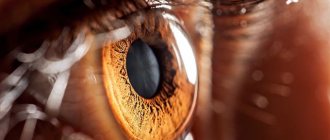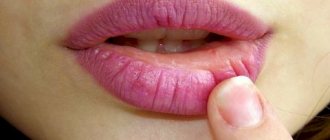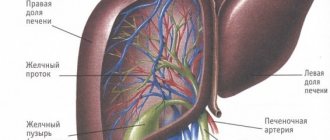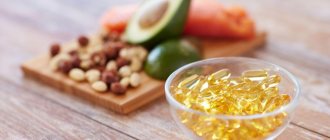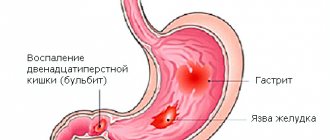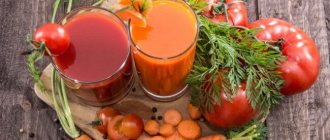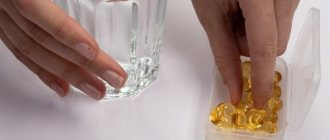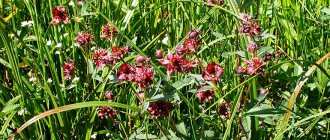Food poisoning is an unpleasant health problem for humans, from which no one is 100 percent immune. Vegetables, berries or fruits treated with chemicals to combat insects can provoke intoxication. In addition, products can be contaminated with harmful microbes and, when consumed, become a cause of intoxication and intestinal infection. Separately, it is worth mentioning mushroom poisoning. A child can become poisoned while exploring the world. Curious children taste everything that interests them: beautiful berries, flowers, liquids in attractive bright packaging, colored medicinal capsules.
Doctors consider alcohol poisoning to be the second most common cause of poisoning in adults.
Since poisoning is not uncommon in our lives, many questions often arise about this. How to deal with intoxication? What to eat after poisoning? We will answer these and other questions below, but now let’s figure out “where legs grow from.”
It happens inside of us
The body does not recover immediately after suffering intoxication, because toxic substances already had a detrimental effect on almost all organs. Often after poisoning, the stomach hurts - this is explained by the fact that the gastric mucosa becomes inflamed - acute gastritis develops. The stomach stops doing its usual job - digesting food. Nausea, belching and pain appear after poisoning. Poorly digested food enters the intestines. And he, of course, is “dissatisfied” with the poor functioning of the stomach, and his “indignation” is manifested by bloating, gurgling and diarrhea after poisoning.
First of all, the liver suffers from intoxication: it works around the clock, seven days a week, neutralizing toxic substances that enter the body. “Fatigue” of the liver may be indicated by heaviness in the right side, yellowness of the skin, bitterness in the mouth, and elevated temperature after poisoning. During the period while recovery from poisoning is underway, general weakness, pain in muscles and joints, poor appetite, insomnia and other symptoms may bother you.
During the recovery period, medications are prescribed that improve digestion processes (enzymes) and the intestinal sorbent Enterosgel, which neutralizes and removes toxic molecules.
To restore beneficial intestinal bacteria, doctors prescribe effective tablets after poisoning - probiotics.
Simple recipes and recommended products
Against the backdrop of recovery, the menu is gradually expanding. It is recommended to include meat broths, especially bone broths, oatmeal, and baked poultry (without skin) in your diet. The main thing is to eat in small portions. Such products are useful due to their neutral taste, nutritional value and content of substances that will help you recover faster. But what is most important is the source of protein, which is used to restore the body. In the healing process, restoration of the intestinal microbiome is of great importance, therefore it is recommended to include in the diet foods that help restore microbial balance. Healthy foods include yogurt, sauerkraut, etc.
Drinks to prevent dehydration
Vomiting and diarrhea are inevitable accompaniments of poisoning, even alcoholic poisoning. As a result, not only liquid is lost, but also minerals. Oral rehydration solutions may be required to prevent and treat dehydration. But it is also acceptable to drink tea, especially herbal tea, compotes, fruit drinks, and mineral water. For example, peppermint tea will help not only cope with dehydration, but also relieve an upset stomach.
List of prohibited products
Food poisoning is associated with inflammation and irritation of the digestive tract. Therefore, the diet is composed of those that do not cause excessive stimulation of the stomach and do not have an irritating effect. There are several food groups that need to be excluded during illness:
- Dairy
Not all dairy products are beneficial during the recovery phase. For example, cheeses and full-fat milk can cause irritation of the stomach walls and aggravate symptoms.
- Bold
Fried, fatty, fast food, as well as other foods with a high percentage of fat can cause worsening diarrhea, as well as abdominal pain.
- Acute
Spicy foods and marinades are products that cause severe stomach irritation, which can lead to upset and worsening symptoms.
- Foods that cause bloating
Fermentable carbohydrates are the main enemy of well-being during recovery. Products containing them lead to frequent bloating, especially if there are contributing factors. For example, irritable bowel syndrome. Therefore, you need to exclude beans, cabbage, onions, garlic, etc. from your diet.
What drinks should you avoid?
To prevent and treat dehydration, you must strictly adhere to the drinking regime. But not all liquids and drinks are useful; some of them can cause serious consequences and complications. During the stages of recovery, eliminate or at least reduce the use of:
- coffee;
- sweet sodas;
- milk;
- tea with caffeine.
Abuse of such drinks is a cause of complications. Instead of replenishing your electrolytes, dehydration may only get worse. As for milk, some people develop lactose intolerance due to intestinal infections. And when they are consumed, signs of intolerance form: nausea, flatulence, etc.
Warning signs
Mild to moderate food poisoning can be treated with over-the-counter treatments. But if the following symptoms appear, you should seek medical help:
- blood in the stool;
- symptoms of dehydration: rare urination, dry mouth, dizziness;
- diarrhea that lasts more than three days;
- temperature increase over 39º C;
- repeated vomiting that lasts more than a day.
When such symptoms appear, additional fluid administration is necessary, but vomiting and diarrhea interfere with its absorption.
Within the walls of the hospital, the doctor will prescribe treatment that stops vomiting and diarrhea. If indicated, antibiotics are prescribed that target the cause of intestinal infections. Finally
The causes of intestinal infections and poisoning can be not only bacteria, but also viruses. But regardless of this, measures must be taken. For example, a diet after drinking alcohol also implies adherence to a drinking regime; food should be gentle and not irritating. But if a single alarming symptom appears, even if it seems to you that the crisis has passed and you are recovering, you need to seek medical help and begin treatment that will help avoid complications.
Text: Yulia Lapushkina.
What can an adult eat after food poisoning?
After severe poisoning, you need to drink plenty of fluids to reduce intoxication and avoid dehydration.
So, what to eat after poisoning and vomiting? Nutritionists know what to do after poisoning and recommend green tea, rice water and white crackers.
For diarrhea after poisoning, you can take a decoction of St. John's wort, blueberries, rose hips, and black currants.
On the second day after poisoning, the diet expands. You can have liquid porridge with water, chicken broth, steamed cutlets made from lean meat. Gradually, the list of what you can eat after poisoning is expanding. In less than two weeks, the patient will be able to return to his normal diet and favorite dishes.
What kind of food after poisoning can slow down recovery?
It turns out that food can not only heal, but also worsen the body’s recovery processes - for example, spicy or salty, hot or cold foods, as well as foods that cause severe gas formation.
Doctors explain to their patients that it is undesirable to eat milk, sausage, smoked meats, canned food, sweets, and fried foods during the recovery period.
For some time after poisoning, you should abstain from coffee, black tea, juices and soda.
Drink plenty of fluids
It is known that the main danger of food poisoning is sudden loss of fluid caused by diarrhea and vomiting. In addition, the body loses minerals and electrolytes important for metabolic processes. To restore balance, the doctor usually prescribes rehydron and drinking boiled water in large quantities. After you feel better, water can be replaced with fruit and berry infusions, mint or ginger infusion without sugar. It is advisable to temporarily exclude tea, coffee, cola and other drinks containing caffeine and acids from the diet. You can drink milk if there is no negative reaction of the body to this product.
Diet after child poisoning
After poisoning, children should not be given bean dishes, pearl barley porridge, pasta, pork dishes, baked goods, sausage, and, of course, fast food.
Dishes for the children's table should be steamed, boiled, stewed or baked. Cooking has some features:
- fish and meat are offered to the baby in the form of a soufflé;
- soups are prepared with vegetable broths or meat broths;
- porridges - “smears” - oatmeal, rice;
- the child should eat small portions 7–8 times a day;
- It is prohibited to force feed the baby!
- during the period of poisoning, it is necessary to ensure plenty of fluids;
- It is impossible, catering to the whims of a sick child, to replace dietary dishes with chips, sweet drinks or candies.
The diet after alcohol poisoning should not overload the digestive organs with unnecessary “work.” What can an adult eat after poisoning?
Products are boiled or steamed. Fatty foods should be avoided after poisoning. In a diet, it is important not only what to feed - portion sizes are also important, as well as the frequency of meals. Nutritionists recommend split meals - up to 6-7 times a day, naturally, in small portions. This will avoid straining the liver, stomach and pancreas. Dishes should not be very cold or very hot.
What do they eat? Recommended: omelettes, casseroles, porridge, vegetable soup, broth, jelly, puree.
If your stomach hurts after poisoning, it is better to hold off on eating vegetables and fruits.
For diarrhea after poisoning, doctors recommend rice water, white crackers and weak tea. During and after poisoning, nutritionists recommend lightly salted rice porridge and yarrow infusion.
Is it possible to drink alcohol after poisoning? The main rule is complete abstinence from alcoholic beverages! In addition to diet, after alcohol poisoning it is also important to combat intoxication - the effective drug Enterosgel will help you cope with it!
Choosing the right products
The goal of dietary nutrition after food intoxication is not only to replenish the body with nutrients. The diet reduces the load on the gastrointestinal tract, restores electrolytic balance, and accelerates the healing process of the mucous membrane.
During the recovery period you can use:
- soups and broths from vegetables and lean meats;
- lean fish and meat, baked or boiled;
- boiled and crushed porridges, for example, oatmeal, buckwheat, rice;
- low-fat milk and cottage cheese;
- wheat crackers, crackers, biscuits;
- chamomile infusions, dill water;
- boiled eggs and steamed omelettes.
Natural juices can only be drunk in diluted form. Wait until digestion is completely restored. Introduce familiar foods into your diet in small portions so as not to overload the gastrointestinal tract.
During the diet, give up:
- sausages, lard, fried, spicy dishes;
- bread, yeast baked goods, sweets;
- complex soups and rich broths;
- pickles, marinades, smoked meats;
- green apples, currants, radishes, radishes, sorrel;
- ketchup, mayonnaise, canned food;
- semi-finished products, sausages.
Citrus fruits, chocolate, mushrooms, spicy seasonings, vinegar, homemade sour cream, carbonated and alcoholic drinks are also prohibited.
First aid for poisoning
For severe poisoning, or poisoning that occurs after eating mushrooms or canned food, you need to call an ambulance.
Symptoms that require medical attention:
- very high temperature;
- frequent diarrhea, watery stools, blood;
- signs of botulism and poisoning from poisonous mushrooms - impaired vision and coordination, difficulty swallowing, hallucinations, delirium and muscle weakness;
- a small child, a pregnant woman or an elderly person was injured.
What to do in case of poisoning:
- Gastric lavage. Give the patient water or a solution of soda, salt, potassium permanganate, and then induce vomiting. You should drink no more than half a liter of liquid at a time. Washing should be continued until there are no impurities in the vomit. Typically this requires approximately five liters of liquid;
- Taking enterosorbent - a drug that binds and removes toxins. This can be activated carbon, polysorb, filtrum or enterosgel;
- Eliminate dehydration and restore electrolyte balance. To achieve this goal, you need to drink plenty of fluids (weak tea and water at room temperature) and use special solutions (rehydron and glucosolan).
In most cases, relief occurs on the second day, and all signs disappear within three to five days. Otherwise, a therapist or gastroenterologist will be able to figure out the problem.
Tranquility Bringer
Alas, the opinion that no one dies from diarrhea is not always true. Diarrhea can be deadly for babies, pregnant women, the elderly and people with heart disease. In them, it quickly leads to dehydration, which impairs the conductivity of the heart muscle, causing arrhythmia and other cardiac dysfunction. And although food poisoning usually does not lead to such dire consequences, it is not so easy to distinguish viral or severe bacterial diarrhea from a simple food toxic coinfection.
Diarrhea can be caused by both bacteria and viruses (including the main “hero” of recent months - COVID-19). But still, most often viral acute intestinal infections are caused by the familiar adeno-, rota- and enteroviruses. It is very easy to become infected with them. Such diseases occur suddenly and sharply, accompanied by a rise in temperature, diarrhea, and vomiting. But, fortunately, they usually don’t last long.
Bacterial infections caused by microbes are often accompanied by more severe symptoms of intoxication (fever, chills, body aches, nausea) and can be quite severe.
It is difficult to determine without tests whether viruses or bacteria caused poisoning, but if, despite treatment, malaise and diarrhea do not subside in the first three days, then most likely there is a microbial infection. This means you need to call a doctor who will prescribe broad-spectrum antibiotics. And only if such treatment does not help, will it be necessary to undergo special tests and select antibiotics in a targeted manner.
Due to the lack of vegetables and fruits. How to prevent stomach cancer? More details
How to make crackers
In case of poisoning, only homemade crackers help. How to make a useful product? There are several methods for preparing crackers that are allowed for intoxication. Before drying, the bread is cut into small pieces. Whether to trim the crusts or not is the individual desire of the consumer. Then start drying.
Methods for preparing crackers:
- Frying in a very hot frying pan. To obtain a dietary product, you cannot use oil or add spices.
- The chopped pieces are laid out on a baking sheet and dried in the oven, the temperature should be minimal so that the dish does not burn.
- In the summer, crackers can be cooked in the sun. The method takes longer, but allows you to avoid drying out the product.
Crackers prepared in similar ways retain all their beneficial properties and help recovery after intoxication. It is better to store the product in cotton cloth. It is not recommended to leave products in plastic bags. The shelf life is reduced, and the formation of mold is possible due to the lack of air in such packaging.
The benefits and harms of crackers
Rusks are dried pieces of bread. The composition and calorie content do not differ from the original product; they contain no water at all. Crackers with different flavors are available in stores. They contain various spices and additives. All crackers are divided into two groups:
- Simple. They are made from bread and are often used for preparing dishes and salads.
- Butter. Made from premium flour and sugar, the composition also contains various additives and fats.
Is it possible to eat crackers if you are poisoned? In case of overdose, it is allowed to eat only homemade food that does not contain any impurities. Store-bought products are not recommended to be eaten even by healthy people, and if intoxicated, they will only cause harm.
What crackers can you eat if you are poisoned? A product made from black or rye bread is considered healthier because it contains fewer calories than bread made from a loaf or rolls. This product has a lower glycemic index, so it is allowed to be consumed by people with diabetes. Why eat crackers, what are the benefits for intoxication?
Useful properties of crackers:
- This product is easily digested without causing severe stress on the organs of the digestive tract.
- An increased amount of carbohydrates allows the injured person to regain energy.
- Another advantage is that crackers do not cause gas formation and do not cause fermentation when digested.
- Dried products without various additives help to consolidate stool, so they are often recommended for various poisonings accompanied by diarrhea.
- The product, like bread, contains B vitamins and other beneficial substances that are preserved when dried.
- The presence of a large amount of fiber allows you to cleanse the body of toxins and toxic substances.
We recommend: How long does it take for poisoning to appear in adults and children?
Harm from crackers in case of poisoning for adults and children is possible if they are consumed in excess. If you eat the product uncontrollably, it is possible that you will develop flatulence and constipation.
You will like the article: “ Chicken broth for poisoning along with breadcrumbs .”
Poor chewing leads to the fact that the rigid structure of the dish causes irritation of the gastric mucosa. As a result, exacerbation of gastritis is possible.
Dish recipes
There are many recipes for dishes suitable for a diet after food poisoning. You can diversify the menu by adopting the following options.
Stuffed pepper
Bell peppers, peeled from seeds, need to be doused with boiling water and kept under a closed lid for 10 minutes. During this time, you need to boil the rice and chicken fillet. In a frying pan, add chopped onion and carrots in a small amount of vegetable oil.
Combine salted rice, onions with carrots and pre-diced meat in a bowl. Fill the pepper with the mixture, place it in a baking dish, add a little water. Keep the dish at 180° for 20 minutes. Serve garnished with greens.
Fish on a bed of vegetables
Chop the carrots and onions and simmer in a frying pan in a small amount of vegetable oil. Place half of the vegetables on a baking sheet. Place salted fish on top of them, then vegetables again. You can complement the composition with lemon slices. Place the dish in the oven to bake for 25-30 minutes. Temperature - 180°.
Meat muffins
Add onions and carrots, previously chopped in a blender, to the ground turkey. Add a little salt, beat in 1 egg, add a little milk (60-70 ml of milk per 200 g of minced meat). If the mass turns out to be liquid, you can thicken it with flour (no more than 1 tablespoon). Fill the muffin tins with minced meat and place in the oven for 20 minutes. Temperature – 190°.
Cooking
Be sure to follow basic hygiene rules. Yes, yes, the same “wash your hands before eating”, and, accordingly, before cooking. Be sure to thoroughly wash your hands with soap and water, as well as the food itself, before you start cooking.
Cut meat, vegetables and herbs on different boards and with different knives to avoid so-called cross-contamination. After cooking, rinse boards, knives, etc. thoroughly. If you cut meat, don’t be lazy and pour boiling water over the board and knife. By the way, it is generally recommended to regularly rinse kitchen boards with boiling water - this way you do not give bacteria a single chance to multiply.
Be sure to wash your eggs before cracking them.
The most dangerous are dishes that do not undergo sufficient heat treatment (raw or semi-raw).
Reviews
Vladimir Aleksandrovich, 54 years old I am an experienced mushroom picker. But recently my instincts failed me, and I poisoned myself with mushrooms. I spent several days in the hospital under IV drips. And after 2 weeks I adhered to a special diet. In addition to it, at the insistence of doctors, I took Regidron, Hilak Forte and a vitamin complex. It took a little over a month to recover.
Natalya Lvovna, 45 years old At night, she mistakenly took the wrong medicine for a headache. Against the background of an overdose, nausea and vomiting appeared 20 minutes after taking the medicine. A little later my stomach started to hurt. Only then did I notice that I had taken the wrong drug. She called an ambulance. At the hospital, they performed gastric lavage and recommended drinking plenty of fluids. For vomiting, they injected Cerucal, then gave me a sorbent to drink. Further treatment was carried out at home: she followed a strict diet.
Menu for the week
You can avoid mistakes when developing a diet menu after poisoning by using a ready-made diet option designed for an adult.
Monday | |
| 7.00 – 8.30 | Oatmeal, crackers. |
| 10.00 – 11.00 | Baked apple, chamomile and raisin infusion. |
| 12.30 – 13.30 | Broth, croutons, chicken breast with mashed potatoes, herbal tea. |
| 15.00 – 15.30 | Kissel, biscuits. |
| 17.00 – 18.00 | Boiled carrot and organic yoghurt salad, steamed fish. |
| 19.30 – 20.30 | Rice water, biscuits |
Tuesday | |
| 7.00 – 8.30 | Semolina porridge, rice jelly. |
| 10.00 – 11.00 | Applesauce (baked apple). |
| 12.30 – 13.30 | Noodle soup, steamed cutlets, vegetable stew, tea, croutons. |
| 15.00 – 15.30 | Dried fruit compote, biscuits. |
| 17.00 – 18.00 | Fish meatballs, vegetable puree, herbal tea, stale bread. |
| 19.30 – 20.30 | Rice broth. |
Wednesday | |
| 7.00 – 8.30 | Buckwheat porridge with vegetable oil, fruit jelly. |
| 10.00 – 11.00 | Rosehip decoction. |
| 12.30 – 13.30 | Fish soup, mashed potatoes, steamed cutlet, croutons, compote. |
| 15.00 – 15.30 | Baked apple. |
| 17.00 – 18.00 | Fish with vegetables, baked in the oven, herbal tea, stale bread. |
| 19.30 – 20.30 | Decoction with dill. |
Thursday | |
| 7.00 – 8.30 | Pumpkin porridge, rice jelly, biscuits. |
| 10.00 – 11.00 | Baked apple. |
| 12.30 – 13.30 | Vegetable and chicken wing soup, turkey meatballs, carrot and zucchini puree, compote, stale bread. |
| 15.00 – 15.30 | Chamomile infusion with raisins. |
| 17.00 – 18.00 | Casserole of zucchini, chicken breast and egg whites, herbal tea, biscuits. |
| 19.30 – 20.30 | Rice water. |
Friday | |
| 7.00 – 8.30 | Liquid buckwheat porridge, tea, crackers. |
| 10.00 – 11.00 | Dried fruits. |
| 12.30 – 13.30 | Veal soup, vegetable stew, steamed fish cutlets, stale bread, compote. |
| 15.00 – 15.30 | Stewed vegetables and chicken fillet, salad of tomatoes, hard cheese and eggs, dried fruit compote. |
| 17.00 – 18.00 | Stuffed peppers with rice and meat, herbal tea, biscuits. |
| 19.30 – 20.30 | Fruit jelly, biscuits. |
Saturday | |
| 7.00 – 8.30 | Oatmeal, jelly, biscuits. |
| 10.00 – 11.00 | Rosehip decoction. |
| 12.30 – 13.30 | Soup with meatballs, potatoes with chicken wings baked in a sleeve, croutons, herbal tea. |
| 15.00 – 15.30 | Rice jelly with raisins. |
| 17.00 – 18.00 | Fish with vegetables baked in the oven, dried fruit compote, stale bread. |
| 19.30 – 20.30 | Bioyogurt. |
Sunday | |
| 7.00 – 8.30 | Turkey casserole with egg whites, zucchini, carrots, herbal tea. |
| 10.00 – 11.00 | Bioyogurt. |
| 12.30 – 13.30 | Noodle soup, rabbit meatballs, buckwheat, compote, stale bread. |
| 15.00 – 15.30 | Dried fruits. |
| 17.00 – 18.00 | Chicken breast with vegetables, tea, crackers. |
| 19.30 – 20.30 | Rice jelly. |
Hot time
At the dacha, on vacation or just in the park on a picnic, it is not so easy to follow the rules of personal hygiene familiar from childhood. And although over the past months we have become accustomed to never parting with sanitizers and, every now and then, we use them to clean our hands, nevertheless, incidents still happen. In addition, when traveling outside the city or forays into nature, we often violate sanitary rules for preparing and storing food. In our apartment we use different cutting boards: one for bread, another for raw meat, a third for sausage, and at a picnic we usually cut everything on one. And it’s also good if you wash the food thoroughly before doing this, and sometimes at the dacha we eat everything straight from the garden and from the bush. But bacteria do not sleep.
The danger may also be hidden in insufficient heat treatment of food, because on a fire, grill or barbecue it is so easy to undercook the kebab a little. And meat “with blood” can be consumed without fear only in a good restaurant, but not in field conditions. However, in the summer it is easy to get poisoned at home. It happens that we sometimes forget to put ready-made food in the refrigerator in time, and in the hot season the food disappears faster. For the same reason, you should not buy food on the street. Again - insects. In summer it is difficult to protect food from flies, which are known to be carriers of many infections. All this increases the risk of intestinal disorders significantly.
Article on the topic
Not sparing your belly. Any pathology begins with problems in the stomach
